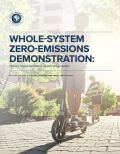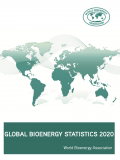This study considers single-use plastic bottles and alternatives that could potentially replace them from a functional and transportation point of view.
With a focus on wastewater, this publication presents a range of solutions to reduce plastic and microplastic pollution from the source to the sea. It also encourages policymakers and practitioners to set priorities and select those that are more cost-effective and suitable for their local context. Finally, it stresses the importance of having technical solutions in addition to appropriate legislation, economic instruments, education, and awareness that force real change on the ground.

This report introduces a new concept — Whole-System Zero-Emissions Demonstration (WS-ZED). The WS-ZED concept goes one step further than net-zero carbon and proposes a broader concept to reveal the added value of synergy among net-zero carbon, net-zero waste, and net-zero pollution. This new concept aims to resolve these growth challenges by adopting a holistic approach to put in place urban management policies to combat both climate change and environmental degradation.

The Global Bioenergy Statistics report focusses on the global development of biomass to energy – supply, production and consumption. The data is presented on different geographical levels – global, continental and regional levels covering all sectors of bioenergy, including liquid biofuels, biogas, pellets, forestry, agriculture, and waste.
This study is the first comprehensive scientific assessment and material flow analysis of plastic packaging waste in the Philippines. This serves as foundation for the proposed elements and components of an extended producer responsibility (EPR) scheme for the Philippines.
